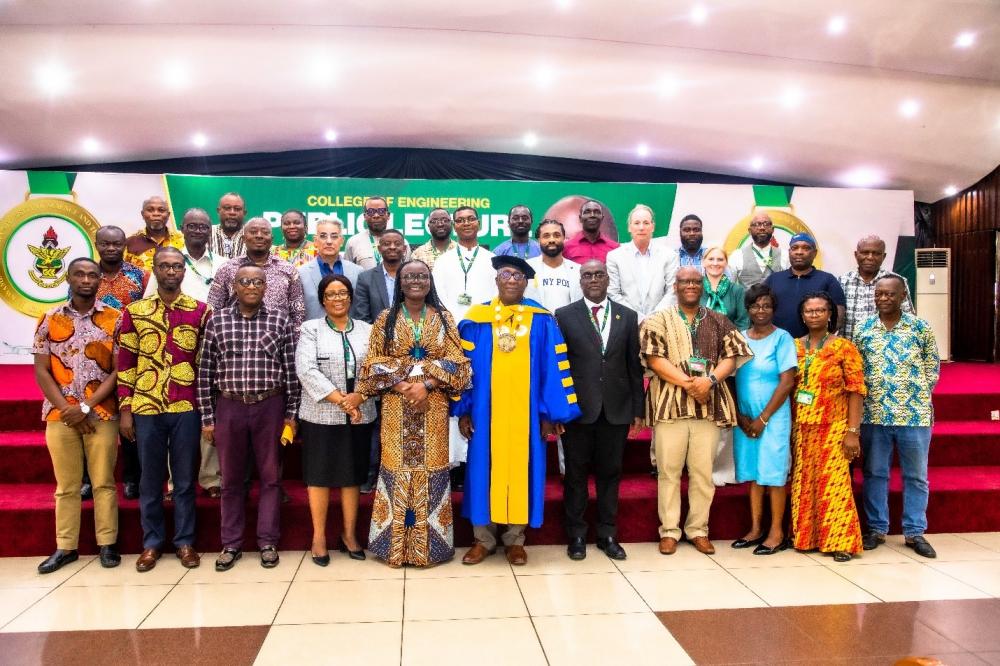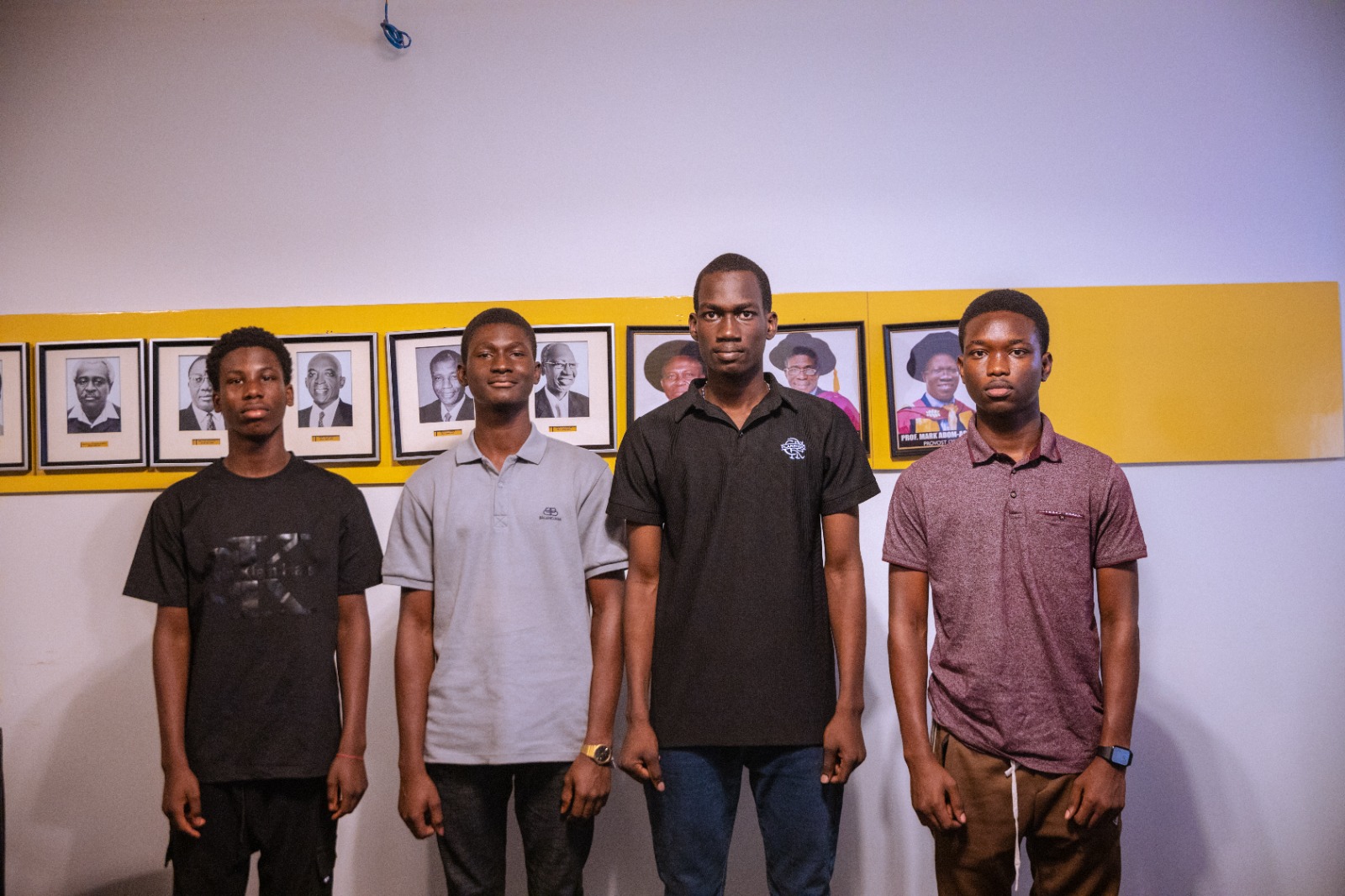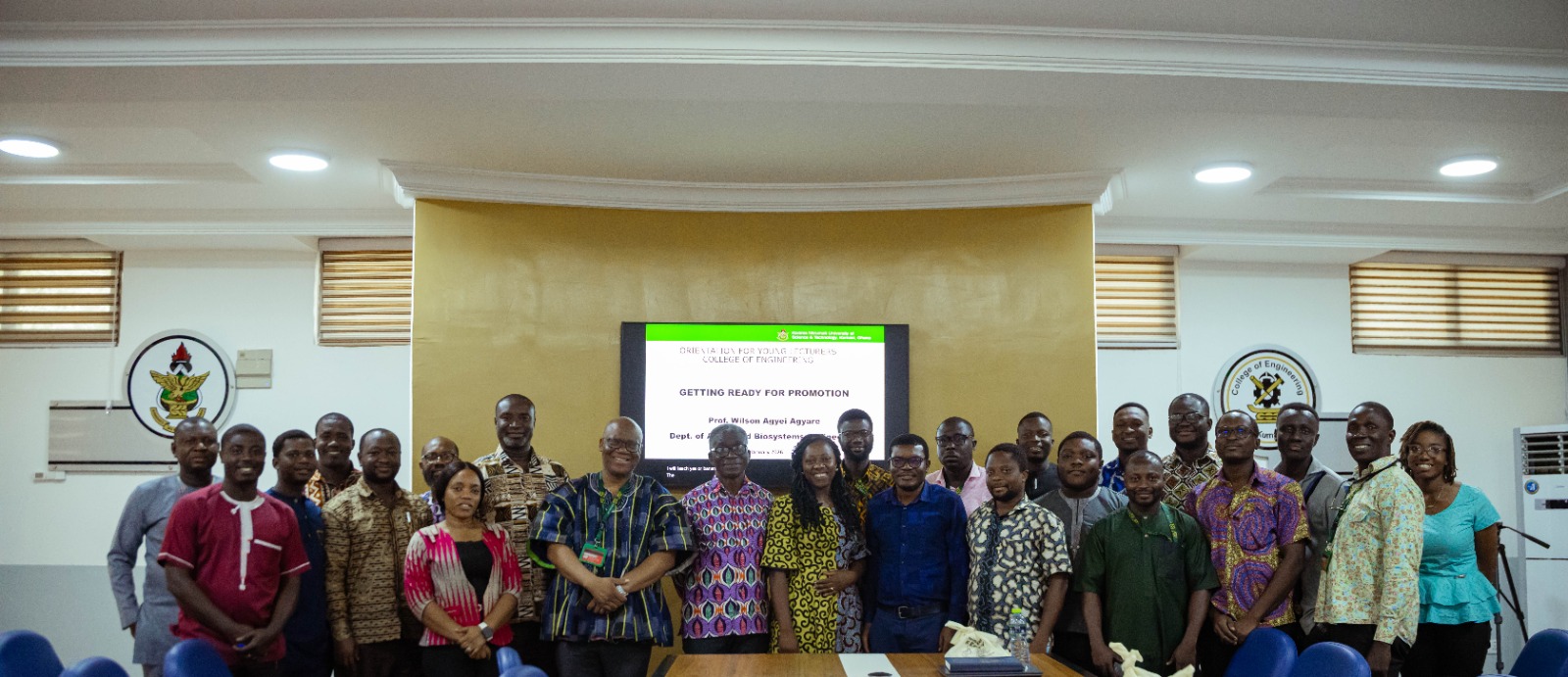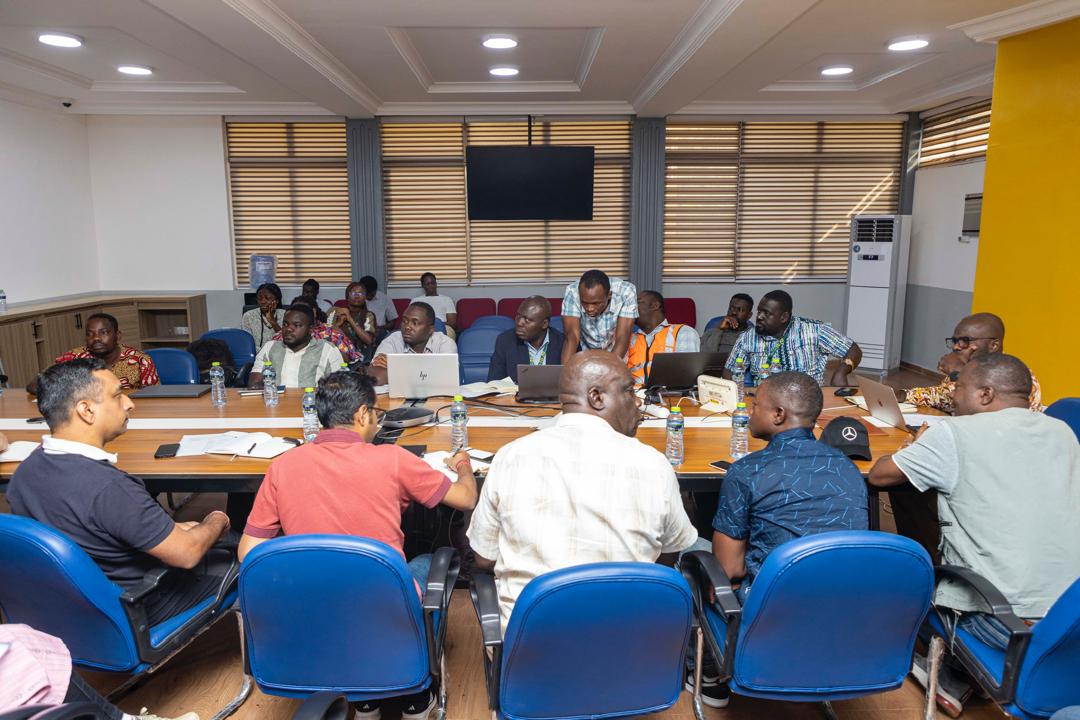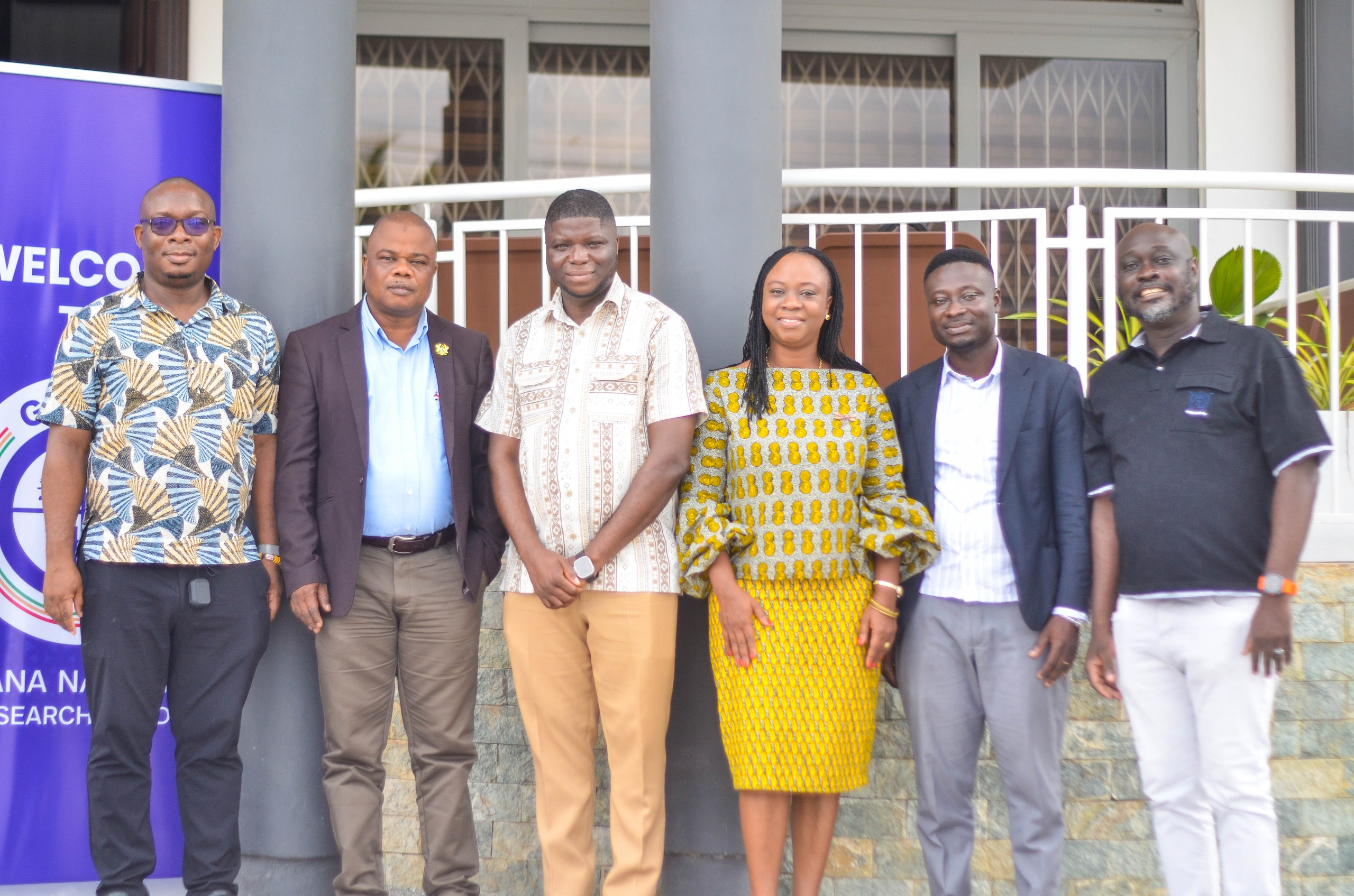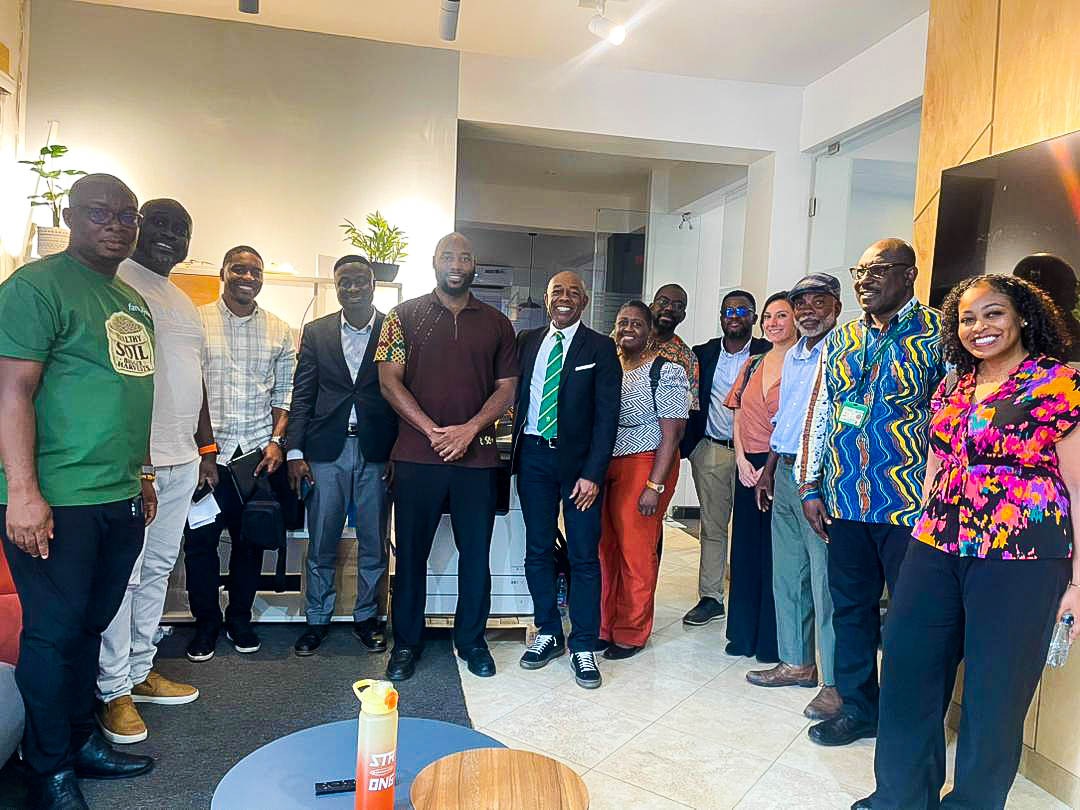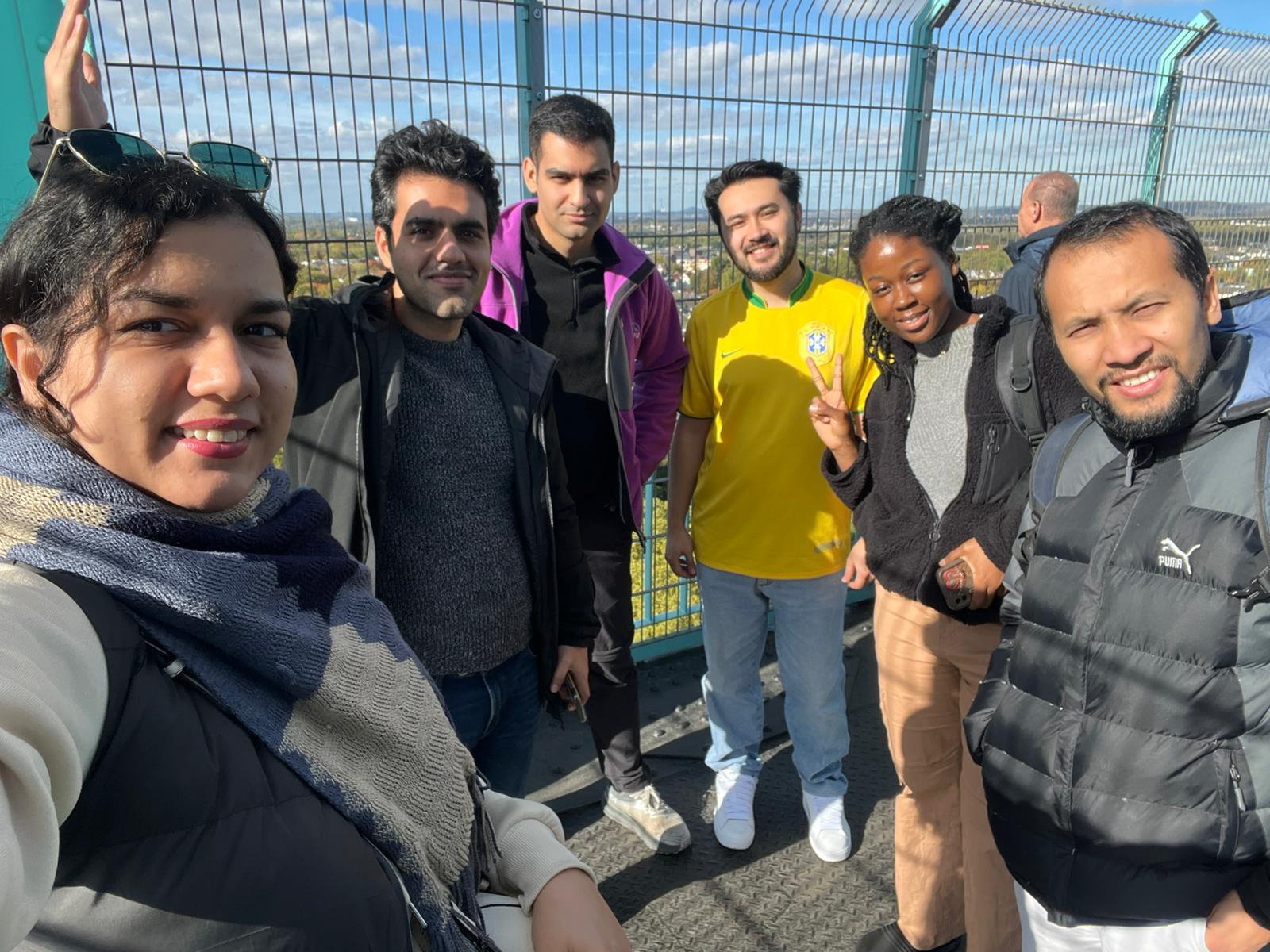As part of the ongoing collaboration between Kwame Nkrumah University of Science and Technology (KNUST) and the State University of New York Polytechnic Institute (SUNY Poly), the President of SUNY Poly, Prof. Wole Soboyejo, delivered a compelling public lecture on the theme: Next Frontiers for Artificial Intelligence: From Health to Renewable Energy & Sustainable Alloy Design/Recycling.
Held at the Great Hall, the lecture attracted faculty members, researchers, and students, all eager to explore the transformative role of AI in solving critical global challenges.
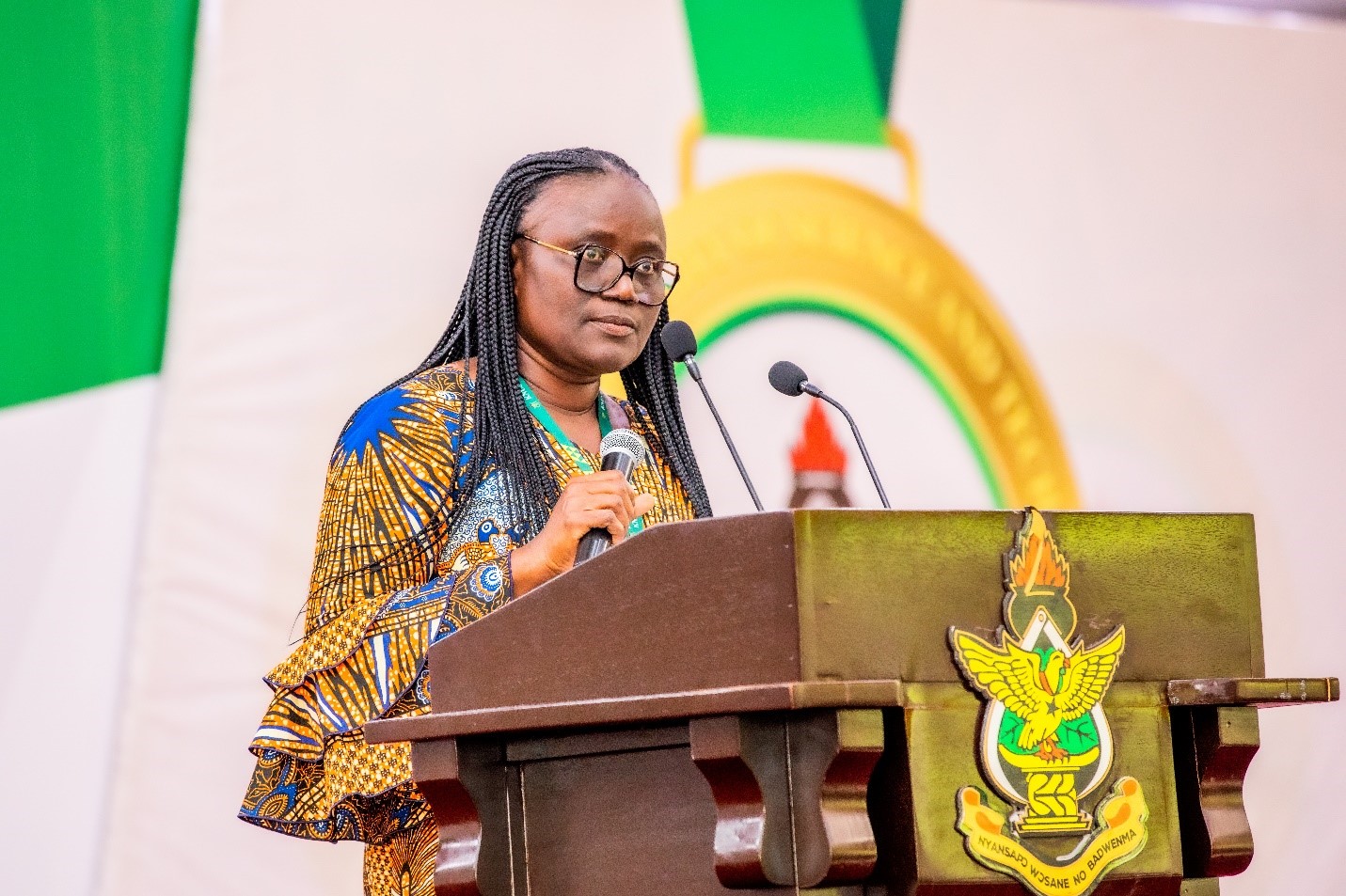
The event was chaired by Prof. Mrs. Rita Akosua Dickson, the Vice-Chancellor of KNUST, who provided context for the discussion, emphasising the relevance of Artificial Intelligence (AI) in Africa’s development. She underscored the need for Ghanaian universities to embrace AI research and application in solving healthcare, energy, and environmental challenges. Artificial Intelligence is no longer a futuristic idea. It is here with us. Our ability to harness its potential will determine how well we compete in the global knowledge economy,” she said.
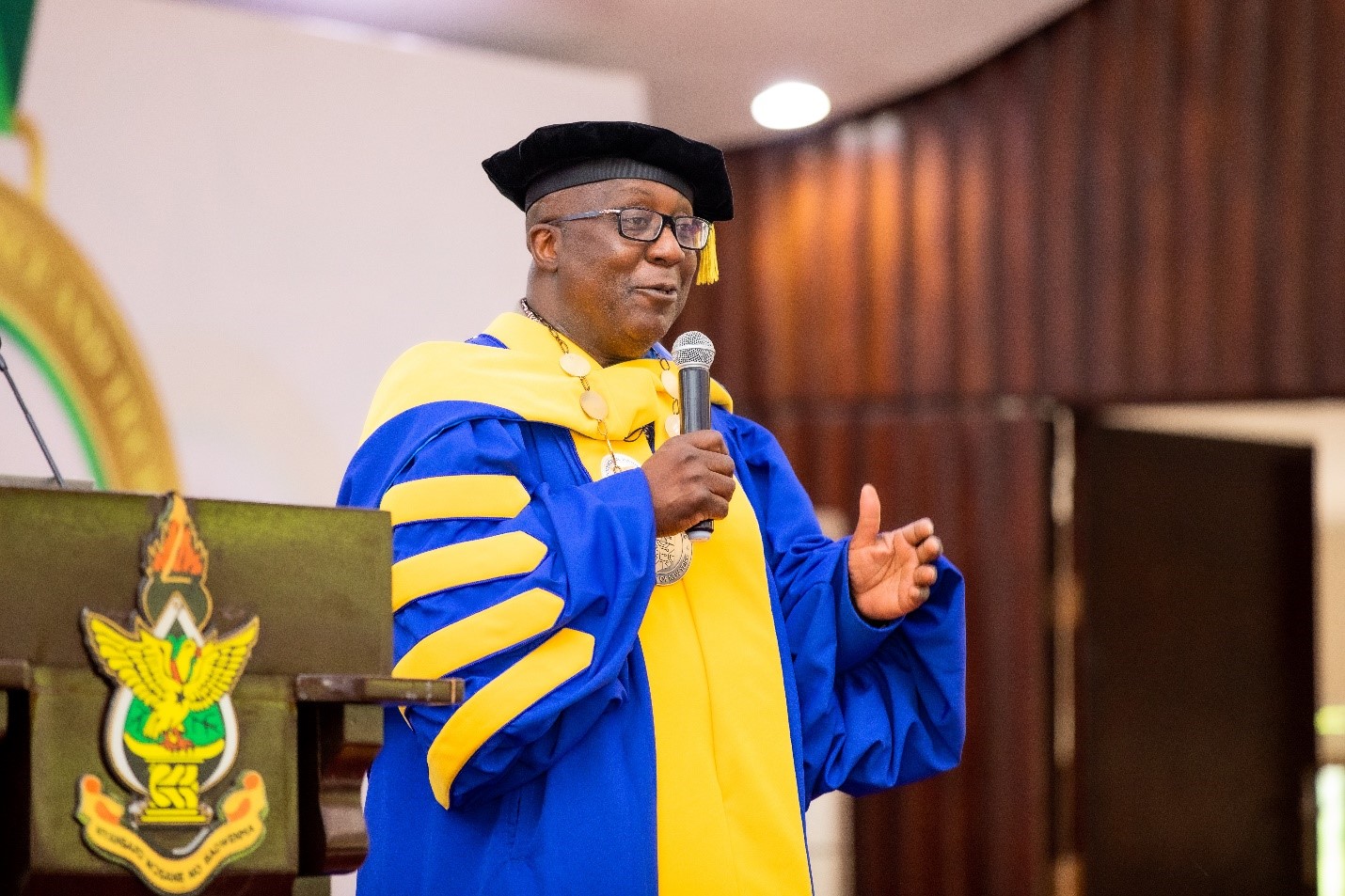
Prof. Soboyejo began his lecture by exploring how AI revolutionises healthcare, enabling doctors and researchers to diagnose diseases faster and more accurately. AI-powered models, he explained, can analyse vast medical datasets to detect conditions like cancer at an early stage, significantly improving patient outcomes. Additionally, AI-driven drug discovery accelerates the development of life-saving medicines, while robotic-assisted surgeries enhance precision in complex procedures.
Transitioning to renewable energy, Prof. Soboyejo highlighted AI’s role in optimising power generation, distribution, and storage. With Africa’s ongoing energy challenges, he stressed that AI-driven innovations could predict energy demand, enhance grid efficiency, and maximise the performance of solar panels and wind turbines. These advancements, he argued, would not only ensure sustainable energy sources but also reduce dependency on fossil fuels and create opportunities for local engineers to develop AI-powered solutions tailored to Africa’s unique needs. “As the world transitions to clean energy, AI plays a crucial role in making renewable energy more efficient, reducing costs, and ensuring a stable power supply,” he explained.
Another critical discussion area was AI’s impact on sustainable alloy design and recycling. Prof. Soboyejo explained that AI models can predict material properties, creating more substantial and environmentally friendly alloys. By integrating AI into materials science, industries can improve recycling processes, reduce waste, and promote a circular economy. This, he noted, is crucial in tackling environmental challenges while ensuring that Africa remains a key player in global industrial development.
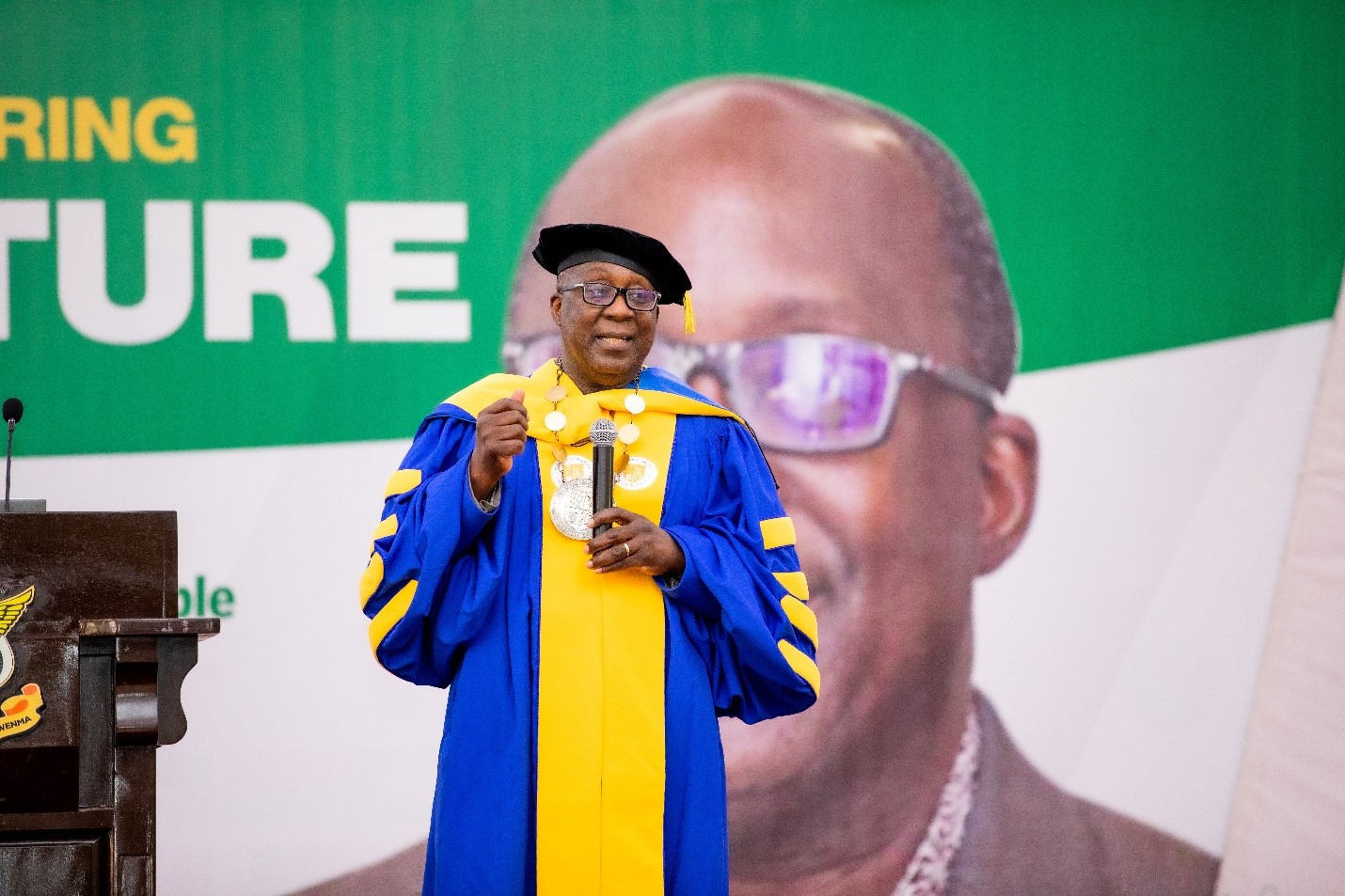
As the lecture drew to a close, Prof. Soboyejo delivered a powerful call to action, urging KNUST to embrace the opportunities of AI and digital transformation. He emphasised the role of African institutions in shaping the future of technology, comparing the continent's potential to the economic rise of the Asian Tigers. "What I do today is to urge you, at this time in the Fourth Industrial Revolution, to engage the opportunity of AI and the Internet of Things and the Internet of Services by bringing together the collective ability here," he stated. “This will make KNUST a leader, a beacon, and an anchor in a new era. Just like the Asian Tigers before us, we will look forward to an era in which KNUST will be an anchor as we create the environment for a new generation of African Lions.”
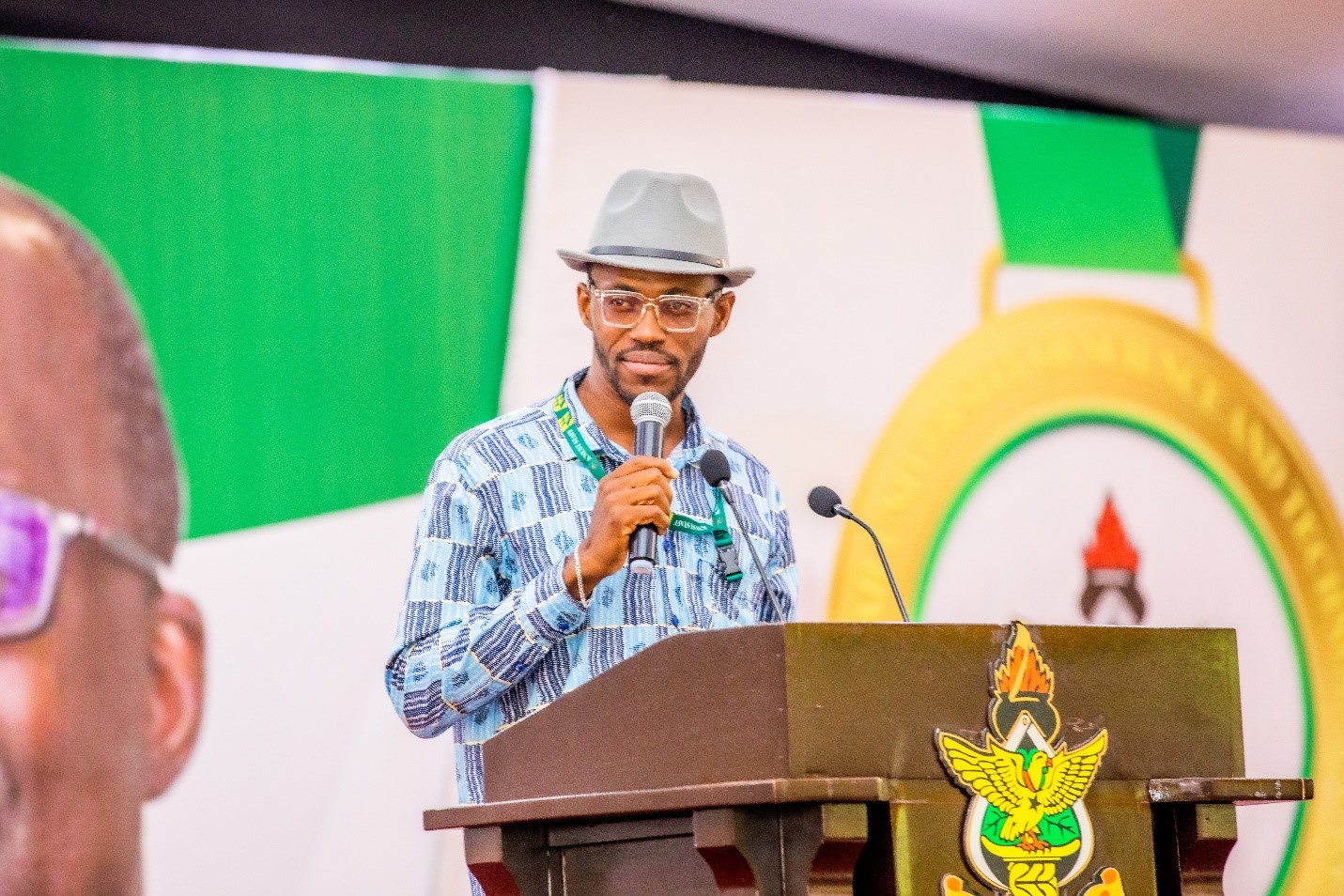
The lecture transitioned into a lively question-and-answer session, where students raised critical questions. The questions bothered whether AI can evolve independently to make intelligent decisions on sustainability and how relying on machine learning for alloy computation data can render materials and metallurgical engineers redundant.
It concluded with closing remarks from the moderator, Mr. Emmanuel Debrah, who reiterated the importance of embracing AI-driven research and development. “This lecture has been a wake-up call. AI is no longer a distant future; it is here. If we do not take active steps now, we will be left behind,” he stated.


